Project: PACE: Policy, Advocacy, and Communication Enhanced for Population and Reproductive Health
637 Search Results Found For : "Best%20Essay%20Writing%20Service%20%F0%9F%8E%93www.WriteMyPaper.online%20%F0%9F%8E%93Write%20Essay%20Fast%20-%20Write%20Essay%20Cheap"
Rural Indian Women Face Heightened Cervical Cancer Risks
(2004) On July 23 of this year, Arati Pashi of Calcutta (Kolkata) made the news when she died after profuse bleeding at Calcutta Medical College and Hospital, a premier medical facility in that city. A doctor who was supposed to be on call was absent, and the medical college’s superintendent ordered an inquiry. The investigation revealed that Pashi had been suffering from cervical cancer.
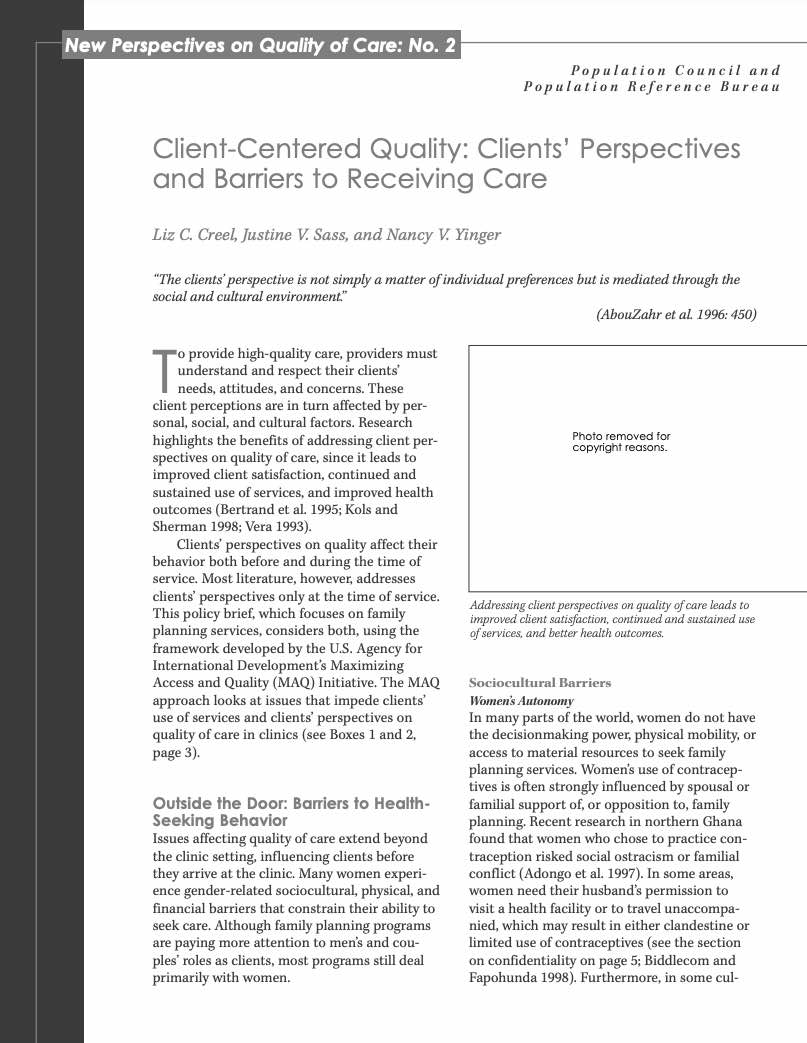
Client-Centered Quality: Clients’ Perspectives and Barriers to Receiving Care
To provide high-quality care, providers must understand and respect their clients' needs, attitudes, and concerns. These client perceptions are in turn affected by personal, social, and cultural factors.
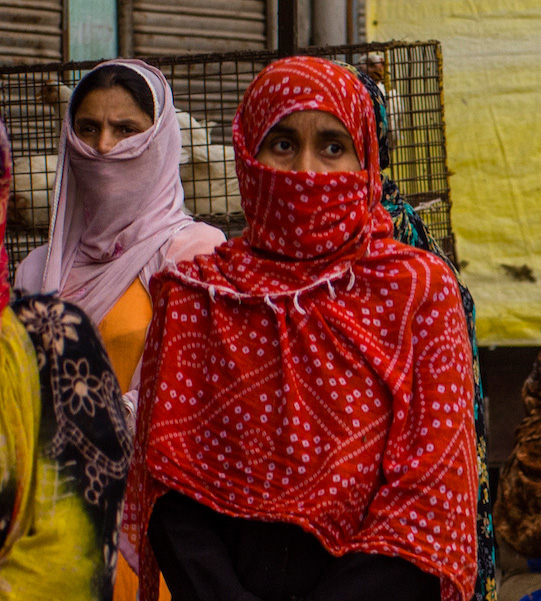
Project: PACE: Policy, Advocacy, and Communication Enhanced for Population and Reproductive Health
Family Planning and the Gendered Impacts of Crises on Women: An Effective Tool Across Sectors to Support Women’s Empowerment and Build Resilience to Shocks
Holistic integrated solutions are key to address the interlinkages of the gendered impacts of crises.
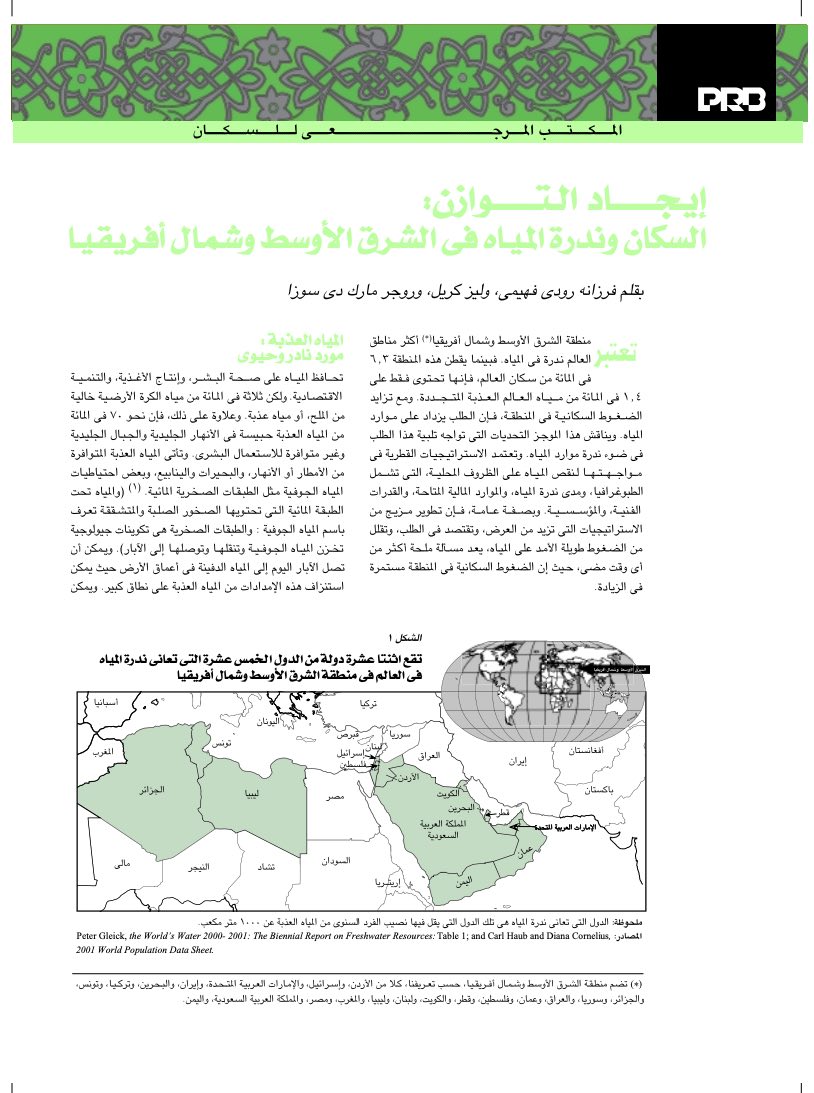
Report. Population and Water Scarcity in the Middle East and North Africa (Arabic)
(2002) The Middle East and North Africa (MENA)* is the most water-scarce region of the world. Home to 6.3 percent of the world's population, the region contains only 1.4 percent of the world's renewable fresh water.
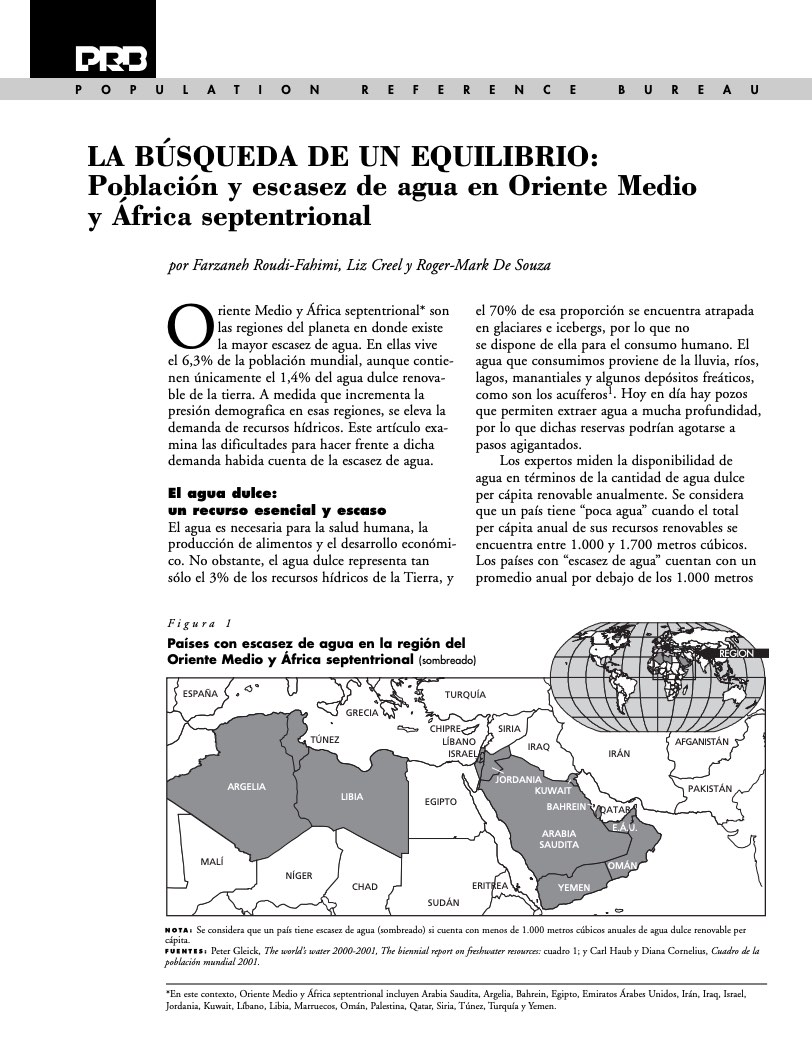
Report. Población y escasez de agua en Oriente Medio y África septentrional
(2002) The Middle East and North Africa (MENA)* is the most water-scarce region of the world. Home to 6.3 percent of the world's population, the region contains only 1.4 percent of the world's renewable fresh water.
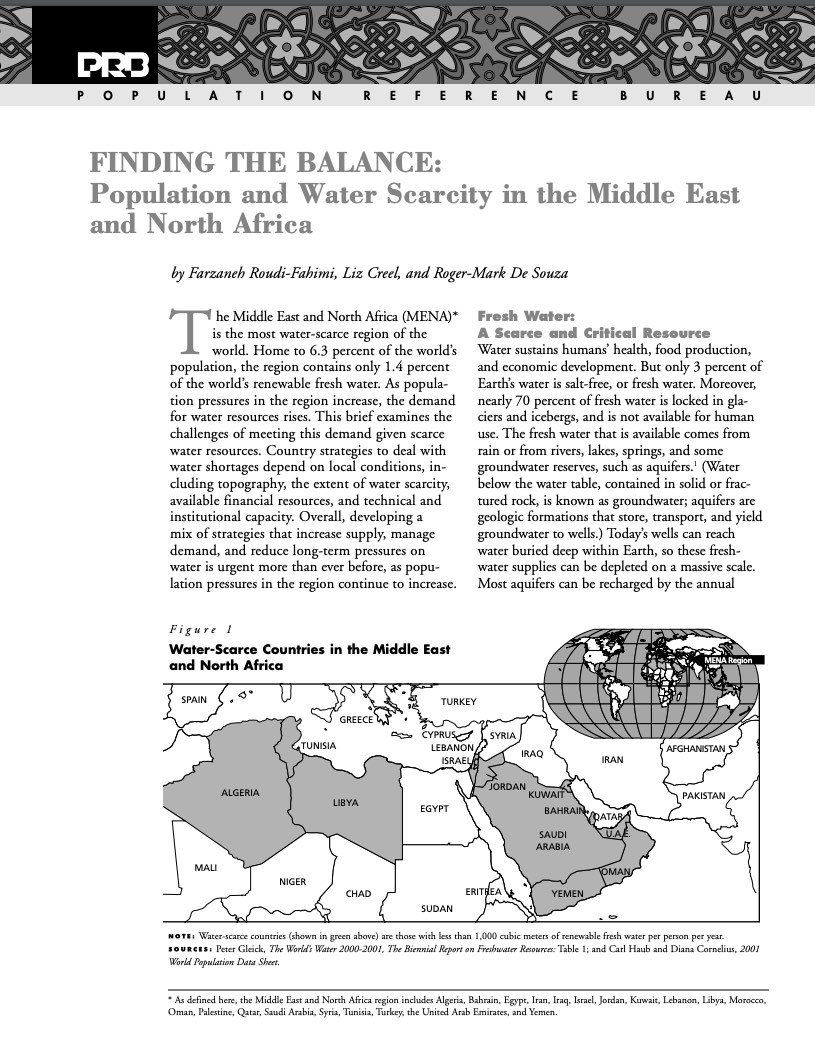
Report. Population and Water Scarcity in the Middle East and North Africa
(2002) The Middle East and North Africa (MENA)* is the most water-scarce region of the world. Home to 6.3 percent of the world's population, the region contains only 1.4 percent of the world's renewable fresh water.
Finding the Balance: Population and Water Scarcity in the Middle East and North Africa
(2002) The Middle East and North Africa (MENA)* is the most water-scarce region of the world. Home to 6.3 percent of the world's population, the region contains only 1.4 percent of the world's renewable fresh water.
Sexual Behavior and Contraceptive Use Among Youth in West Africa
(2009) Youth around the world—especially young women—experience a high risk of unplanned pregnancy and HIV because of their limited knowledge about sexual and reproductive health. Sexual behaviors among youth can include positive practices, such as abstinence and condom use, or lead to negative outcomes such as unplanned pregnancy and the spread of sexually transmitted infections (STIs).


